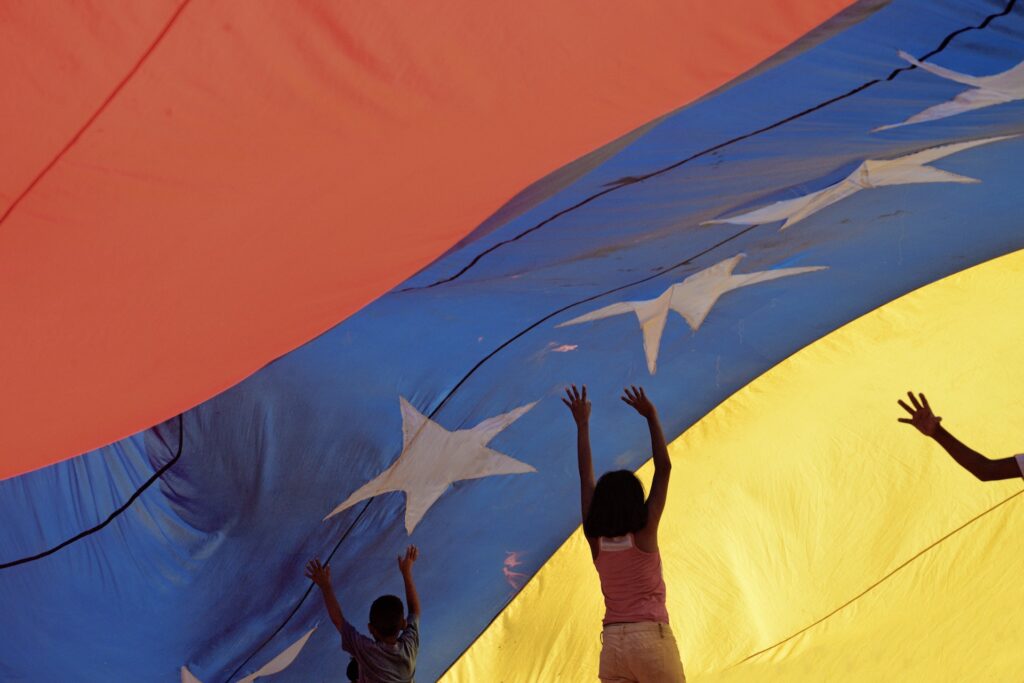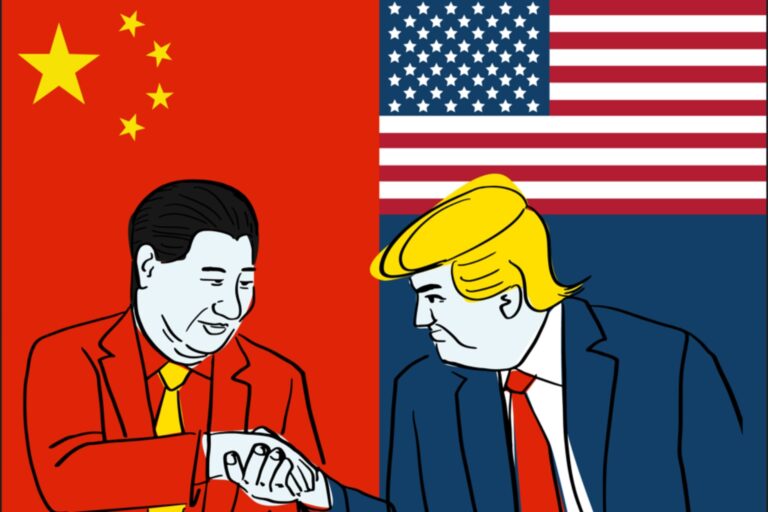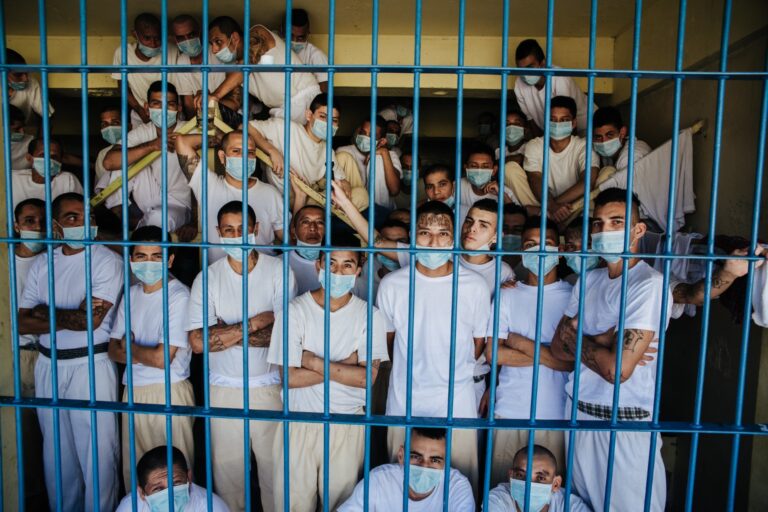Introduction
The European Union (EU) and the United States are usually seen as key players in democracy promotion around the world. Indeed, the EU’s Common Foreign and Security Policy engrains the principle of protecting and promoting democracy and human rights.[1] However, in its external relations with Latin America, the EU has long lacked a strategic policy in dealing with autocratization in the region. As one analyst portrays, EU democratization efforts in the Western Hemisphere assimilate more to a tradition than to a serious policy,[2] preventing the supranational bloc from playing a more assertive role against dictatorships, such as Venezuela’s hegemonic autocracy. In Venezuela’s challenging case, the EU remains invested in the country’s democratization, not only because member states have an institutional duty but also because Maduro’s regime poses political and security threats to the EU.[3] The Venezuelan autocracy has survived because of its political and economic alliances with revisionist states,[4] especially China and Russia, challenging the West’s security.
Nonetheless, to improve the prospects of democratization in Venezuela, the EU must revert its recent policy blunders and reconceive its role as a democratizing player. The EU already seeks to deal with assertions from Russia, democratic backsliding in Hungary and Poland, and the destabilizing role of Belarus, challenges that should indisputably be Europe’s primary focus.[5] In far-away Venezuela, instead of taking a leading role, a more effective and smarter EU approach would complement and support the United States—the Western Hemisphere hegemon—in its policies towards Venezuela’s democratization rather than undermine them.
Background: Maduro’s Venezuela and the Case for Democratization
Nicolás Maduro, Venezuela’s dictator, is not only responsible for one of the worst peacetime humanitarian crises and economic declines in history[6] but also for consolidating the most durable and resilient kinds of electoral autocracies: hegemonic regimes. As one analyst explains, these types of authoritarian rule hardly ever fall or democratize, and when they do, transitions usually originate from cracks and divisions within the regime. These so-called horizontal threats (e.g., coups) on hegemonic autocracies “are very rare, but if they occur, they are highly destabilizing.”[7] Indeed, while coups may result in autocratic continuation, evidence strongly suggests that coups in autocracies—especially hegemonic ones—can lead gradually towards democratization.[8] Yet Maduro’s regime looks anything but divided. Despite cleverly aiming at dividing important elite figures, an uprising in April 2019 failed to fully precipitate a threatening division within the regime,[9] mostly due to Russian and Cuban support. Recent primary elections within the ruling United Socialist Party of Venezuela (PSUV) also demonstrated loyalists’ discipline[10] and perfected the patron-client tactics that largely sustain regime unity.[11] Sanction-evasive tactics[12] learned from China, Russia, and Iran, have also maintained regime unity as regime officials adapted. In sum, Venezuela’s hegemonic regime remains resilient, unified, and highly uninterested in liberalizing.
The importance of liberalization and democratization is sometimes taken as a given or seen as a Western-imposed model that is incompatible with the target state; however, this is not the case of Venezuela. First, public opinion sides with a democratic government. A poll by Latinobarómetro showsthat, on average, 69 percent of Venezuelans see democracy as their preferred form of government, remarkably above the regional average of 49 percent.[13]
Moreover, the democratization literature sheds light on the importance of promoting democracy in Venezuela. For example, countries with past democratic experiences, like Venezuela (1958 – 2006), are likely to experience democratic transitions and consolidation.[14] Levels of economic development and international factors similarly point at directions to influence democratization in Venezuela.[15] In Venezuela’s oil-based economy, the authoritarian regime of Hugo Chávez laid the foundations for the current regime to provoke a collapse in oil production—way before U.S. sanctions[16]—and downsized GDP per capita by 48% between 2013 and 2018.[17] The levels of underdevelopment are only likely to remain or worsen under Maduro’s rent-seeking, oil-dependent, and economically-mismanaged autocracy, while a legitimate, credible administration under democratic rule is more probable to attain higher levels of economic development given the political, institutional, societal, and international incentives of a post-transition recovery. Finally, while great powers (Russia and China) employ autocratic-survival tactics that sustain Maduro, the fact that Venezuela resides in a largely democratic region[18] under the hegemony of a democratic state (the United States) indicates that democratization is a strategic and security imperative for the United States as a democratic great power.
These theories and arguments, while not definite causes of democratization in Venezuela, make a strong case that democratization in Venezuela is not only likely but desirable for both domestic and international reasons. Therefore, having considered the puzzle of autocratic Venezuela and basis for promoting democracy in Venezuela, what role does the EU play in this domestic and international setting? The EU must put a stop to its EU-led democratization efforts and align its democratization strategies with those of the United States to most effectively precipitate horizontal threats in Maduro’s hegemonic regime.
One Step Forward, Two Steps Back: Overview of Recent EU Venezuela Policy
An overview of EU Venezuela policy reveals its recent misguided efforts. While the EU correctly followed the American example by imposing individual sanctions on regime officials[19] and propping up humanitarian aid to Venezuela,[20] its members have consistently failed to calibrate and enforce[21] their sanctions, making them irrelevant for regime officials. The EU’s insufficient measures strain the US ability to respond and mount more effective pressures.[22]
Despite initially extending recognition to Juan Guaidó as Interim President in 2019[23] along with the United States, EU delegates have held backstage talks[24] with regime officials and dissenting opposition figures. For instance, they sidelined then-recognized Guaidó and US efforts[25] by meeting regularly with Henrique Capriles, an opposition member that fiercely criticizes the Interim Government, to explore the deployment of an electoral observation mission (EOM) for the fraudulent 2020 legislative elections[26] rejected by the democratic opposition. While European governments condemned the polls[27] and added 19 Maduro loyalists[28] to its sanctions list, the EU took the ill-advised step of de-recognizing the Interim Government in January 2021,[29] derailing from the consensus of the United States, Canada, and some Latin American states.
Another misstep occurred in the context of the November 2021 regional elections in Venezuela when the EU agreed with Venezuela’s hegemonic regime to deploy an EOM.[30] The decision by Josep Borrell, the EU’s top diplomat, disregarded experts’ advice that an EOM “may be contrary to the political line of the EU.”[31] As anticipated, the November elections featured critical electoral irregularities,[32] violence,[33] co-opted opposition parties,[34] state-led voter coercion and intimidation,[35] and even reversion of electoral results in opposition-won Barinas.[36] Indeed, these EU-led measures show the inconsistency of their policy towards Venezuela. Borrell cited[37] that participation from the democratic opposition was fundamental for sending an EOM. However, when the democratic opposition voted to extend Guaidó’s Interim Presidency until 2022 (recently prolonged until January 2023),[38] the EU ignored the opposition’s will and de-recognized Guaidó.[39]
These counterproductive EU policies on Venezuela weaken and antagonize American policy approaches. While the EU and United States have both rhetorically supported a democratic transition, European actions have sought to replace rather than complement Washington’s policies. The new posture hinders democratization prospects and is likely to fail. Since Venezuela is in Americas’ direct sphere of influence, Washington enjoys more impactful economic and political leverage in Caracas than any EU member does. This also means that an autocratic Venezuela, allied with a great power like China, likely poses a latent security challenge for the United States, adding urgency to pursuing a more strategic Venezuela policy. This stems from the logic that great powers’ encroachment in the region would undermine US hegemony and reduce its ability to maintain a secure position.[40] Such context indicates the EU should harmonize their Venezuela policy to the primary stakeholders’ policies (US policy) to increase pressure and enhance the effectiveness of democratization efforts. While the Biden administration has work to do to wear down the resiliency of Maduro’s regime and challenge other foreign influences, the fact that the administration remains committed to supporting Guaidó[41] and largely maintains sanctions[42]—Maduro’s sole motive to negotiate—provides reason to believe that Washington understands, to some degree at least, Venezuela’s autocratic puzzle.
Moving Ahead: Understanding the Authoritarian Puzzle and Policies to Support Venezuela’s Democratization
As a key transatlantic ally, the EU would best assist by subordinating its democracy promotion actions in Venezuela to those of the United States. Indeed, US sanctions have pushed the regime to negotiations twice (Barbados 2019 and Mexico 2021). As two experts explain, “non-recognition [of Maduro] and sanctions are fundamental elements of a strategy to reestablish democracy in Venezuela.”[43] Yet these are two areas where the EU erroneously deviated from the Americans’ lead and lessened the general impact these actions sought in triggering destabilizing divisions. Therefore, knowing that hegemonic regimes adapt to sanctions and employ electoral and institutional tactics to divide the opposition—hindering the prospects for democratization through elections—the EU should make changes to help precipitate horizontal threats that challenge Venezuela’s hegemonic autocracy.
First, the EU should fully or substantially align its policies with the United States’ and restrain from implementing an EU-led solution. This means that the EU must understand and internalize its supporting yet influential role to bolster and complement instead of diverging from Washington’s efforts. For example, the United States has reiterated its support for and recognition of the Interim Government;[44] hence, EU members should re-recognize Guaidó, or his successor, as Interim President with all rights and responsibilities as head of state and government.[45]
Second, EU members should make efforts to strictly enforce its sanctions mechanism.[46] If regime officials see no enforcement in sanctions, the costs these measures intend to apply become null. The EU should also consider sanctions against more individuals for committing serious human rights violations, engaging in illicit activities, and sponsoring terrorist groups as well as limiting operations with Venezuelan state companies (oil, gas, mining, etc.) that keep PSUV and military officials financially afloat. The EU must eventually employ its wide arsenal of geoeconomic tools[47]— including trade and investment countermeasures, sanctions, and energy policies—to support the United States and itself in confronting Chinese, Russian, Iranian, and Turkish support to Maduro.
Finally, EU members should adopt a strategic framework oriented towards causing and/or deepening divisions within PSUV and military elites. By rallying behind Washington in exacerbating horizontal threats as the primary route towards democratization, EU members could avoid or reduce serious institutional and interstate inconsistencies that arose from embarking on an EU-led process. These speedbumps have not only undermined the effectiveness of EU foreign policy actions but also “the EU’s credibility as an international actor.”[48] For instance, knowing how and with which regime members the United States and EU engage, and which agenda items to discuss, are crucial factors to consider. The EU in coordination with the United States could start holding talks with regime allies—specifically Russia and even Turkey, where the European members may have more leverage.
The EU’s recognition of its strengths as a supporting actor would enhance democratization efforts in Venezuela. If Europe internalizes the complicated puzzle of Maduro’s hegemonic regime, then it would do well to exercise restraint, put behind its EU-led path, and assist US initiatives to accelerate horizontal threats within Maduro’s regime.
[1] Stephan Keukeleire and Tom Delreux, The Foreign Policy of the European Union (New York: Palgrave Macmillan, 2014), https://books.google.es/books/about/The_Foreign_Policy_of_the_European_Union.html?id=Q4odBQAAQBAJ&redir_esc=y.
[2] Sussane Gratius, “EU Democracy Promotion in Latin America: More a Tradition than a Policy,” European Foreign Affairs Review 16, no. 5 (January 2011): 689–703.
[3] Ryan C. Berg and Jorge González-Gallarza, Europe’s Last Chance: How the EU Can (and Should) Become the Indispensable Actor in Venezuela’s Democratic Restoration (Washington: American Enterprise Institute and Fundación Civismo, 2021), https://www.aei.org/wp-content/uploads/2021/03/Europes-last-chance.pdf?x91208/.
[4] Cynthia J. Arnson, Venezuela’s Authoritarian Allies: The Ties that Bind? (Washington:Wilson Center, 2021), https://www.wilsoncenter.org/sites/default/files/media/uploads/documents/LAP_210510-Venezuelas%20Authoritarian%20Allies-V5.pdf.
[5] Stephen M. Walt, “Will Europe Ever Really Confront China?,” Foreign Policy, October 15, 2021, https://foreignpolicy.com/2021/10/15/will-europe-ever-really-confront-china/.
[6] Anatoly Kurmanaev, “Venezuela’s Collapse Is the Worst Outside of War in Decades, Economists Say,” The New York Times, May 17, 2019, https://www.nytimes.com/2019/05/17/world/americas/venezuela-economy.html.
[7] Andreas Schedler, The Politics of Uncertainty: Sustaining and Subverting Electoral Authoritarianism (New York: Oxford University Press, 2013), 367.
[8] Nikolay Marinov and Hein Goemans, “Coups and Democracy,” British Journal of Political Science 44, no. 4 (October 2014): 799–825, offer insightful evidence for the EU and United States, explaining that democratization through coups is “to a significant degree, attributable to international influences.” See also, Clayton A. Thyne and Jonathan M. Powell, “Coup d’état or Coup d’Autocracy? How Coups Impact Democratization, 1950–2008,” Foreign Policy Analysis 12, no. 2 (February 2016): 192–213; Michael K. Miller, “Reanalysis: Are Coups Good for Democracy?” Research and Politics 3, no. 4 (December 2016); Mwita Chacha and Jonathan Powell, “Economic Interdependence and Post-Coup Democratization,” Democratization 24, no. 5 (August 2017): 819-838.
[9] Dave Lawler and Oriana Gonzalez, “The day Maduro almost fell: The inside story of a failed uprising,” Axios, April 29, 2021, https://www.axios.com/venezuela-juan-guaido-maduro-april-30-uprising-529d48df-4898-445a-b4ff-65b6dbb6785e.html.
[10] Leonardo Di Bonaventura-Altuve and Ryan C. Berg, “Perfecting the Authoritarian Playbook: How the Maduro Regime Is Using Internal Party Primaries to Further Consolidate Power,” Center for Strategic and International Studies, July 15, 2021, https://www.csis.org/analysis/perfecting-authoritarian-playbook?fbclid=IwAR27qQnVWWgZW9EMGJ66RbEvsNJ79Sel_cNzM93QVV2u7NcAwbyzEUtz2S0.
[11] Javier Corrales, “Authoritarian Survival: Why Maduro Hasn’t Fallen,” Journal of Democracy 31, no. 3 (July 2020): 39–53, https://doi.org/10.1353/jod.2020.0044.
[12] Robert D. Blackwill and Jennifer M. Harris, War by Other Means: Geoeconomics and Statecraft (Cambridge: Harvard University Press, 2016).
[13] “Informe 2021,” Corporación Latinobarómetro, 2021, 22, https://www.latinobarometro.org/lat.jsp?Idioma=0&Idioma=0.
[14] See Jon C. Pevehouse, Democracy from Above: Regional Organizations and Democratization (New York: Cambridge University Press, 2005), 82-87; see also for a general overview of the effects of political histories on regime transitions and consolidation, Adam Przeworski, Michael E. Alvarez, Jose Antonio Cheibub, and Fernando Limongi, Democracy and Development: Political Institutions and Well-Being in the World, 1950-1990, (New York: Cambridge University Press, 2000), 127.
[15] See Carles Boix, “Democracy, Development, and the International System,” American Political Science Review 105, no. 4 (November 2011): 809–828.
[16] Ricardo Hausmann and Frank Muci, “Don’t Blame Washington for Venezuela’s Oil Woes: A Rebuttal,” Americas Quarterly, May 1, 2019, https://www.americasquarterly.org/article/dont-blame-washington-for-venezuelas-oil-woes-a-rebuttal/.
[17] Miguel Angel Santos, “The Anatomy of a Collapse and a Roadmap for Reconstruction,” presentation for the Venezuelan Caucus Speaker Series, March 2019, http://miguelangelsantos.net/presentations/.
[18] About 83% of all sovereign states in the Americas are democratic (30 out of 36), according to data gathered from Alizada et al., Autocratization Turns Viral. Democracy Report 2021 (University of Gothenburg: V-Dem Institute, 2021) and assessments on the Caribbean from Jorge I. Domınguez, Robert Pastor, and R. Deslie Worrell, (Eds.). Democracy in the Caribbean (Baltimore: The Johns Hopkins University Press, 1993) and Kate Quinn, Introduction: revisiting Westminster in the Caribbean, Commonwealth & Comparative Politics 53, no. 1 (January 2015): 2–3.
[19] Declaration by the High Representative on behalf of the EU on the alignment of certain countries concerning restrictive measures in view of the situation in Venezuela, prepared by the European Council (Brussels, 2021), https://www.consilium.europa.eu/en/press/press-releases/2021/11/26/declaration-by-the-high-representative-on-behalf-of-the-eu-on-the-alignment-of-certain-countries-concerning-restrictive-measures-in-view-of-the-situation-in-venezuela/.
[20] Venezuela Factsheet, prepared by the European Commission(Brussels, 2021), https://ec.europa.eu/echo/where/latin-america-and-caribbean/venezuela_en.
[21] Berg and González-Gallarza, Europe’s Last Chance.
[22] Robert D. Blackwill and Jennifer M. Harris, War by Other Means: Geoeconomics and Statecraft, (Cambridge: Harvard University Press, 2016).
[23] Paul Dallison, “EU countries recognize Guaidó as Venezuela’s president,” Politico, February 4, 2019, https://www.politico.eu/article/eu-countries-recognize-juan-guaido-as-venezuelas-president-nicolas-maduro/.
[24] Luís Pellicer, “La UE manda una misión a Venezuela para negociar unas elecciones creíbles,” El País, September 24, 2020, https://elpais.com/internacional/2020-09-24/la-ue-manda-una-mision-a-venezuela-para-negociar-unas-elecciones-creibles.html.
[25] Elliot Abrams, “EU’s Top Diplomat Ignores His Staff and Insists on Observing Venezuela’s Elections,” Council on Foreign Relations, October 13, 2021, https://www.cfr.org/blog/eus-top-diplomat-ignores-his-staff-and-insists-observing-venezuelas-elections.
[26] Pellicer, “La UE manda una misión a Venezuela.”
[27] Venezuela: Declaration by the High Representative on behalf of the EU on the elections for the National Assembly, prepared by the European Council (Brussels, 2020), https://www.consilium.europa.eu/en/press/press-releases/2020/12/07/venezuela-declaration-by-the-high-representative-on-behalf-of-the-european-union-on-the-elections-for-the-national-assembly/.
[28] Venezuela: 19 officials added to the EU sanctions list, prepared by the European Council (Brussels, 2021), https://www.consilium.europa.eu/en/press/press-releases/2021/02/22/venezuela-19-officials-added-to-the-eu-sanctions-list/.
[29] Council Conclusions on Venezuela, prepared by the General Secretariat of the European Council (Brussels, 2021), 2, https://www.consilium.europa.eu/media/48053/st05582-en21.pdf.
[30] Venezuela: EU deploys Election Observation Mission, prepared by the European External Action Service (Brussels, 2021), https://eeas.europa.eu/headquarters/headquarters-homepage/104849/venezuela-eu-deploys-election-observation-mission_en.
[31] Michael Stott and Henry Foy, “Josep Borrell ignored staff advice over EU Venezuela election mission,” Financial Times, October 12, 2021, https://www.ft.com/content/642fb7ef-01ed-438d-9a19-316423acc935.
[32] “ONG Súmate y Espacio Público denuncian irregularidades en mesas mientras oficialismo llama al ‘remate’,” Banca y Negocios, November 21, 2021, https://www.bancaynegocios.com/ongs-sumate-y-espacio-publico-denuncian-irregularidades-en-mesas-mientras-oficialismo-llama-al-remate/.
[33] “Balaceras, amenazas, robos y golpes: los videos de los ataques de los colectivos chavistas durante las elecciones regionales en Venezuela,” Infobae, November 21, 2021, https://www.infobae.com/america/venezuela/2021/11/21/los-videos-de-los-violentos-incidentes-en-venezuela-bandas-armadas-amenazan-a-los-votantes-e-impiden-la-apertura-de-mesas/.
[34] Deisy Martínez, “Cuáles son las tarjetas electorales afectadas por sentencias del TSJ,” Efecto Cocuyo, May 24, 2021, https://efectococuyo.com/politica/cuales-son-las-tarjetas-electorales-afectadas-por-sentencias-del-tsj/.
[35] “El voto “duro” del chavismo será clave en los comicios regionales de Venezuela,” France 24, November 19, 2021, https://www.france24.com/es/am%C3%A9rica-latina/20211119-venezuela-elecciones-chavismo-seguidores.
[36] Kejal Vyas, “Venezuela Governor’s Election Ruling Sparks Outcry,” The Wall Street Journal, November 29, 2021, https://www.wsj.com/articles/venezuela-governors-election-ruling-sparks-outcry-11638234842. Following the annulment of the electoral results in Barinas, where the opposition obtained a slim victory, the regime-controlled Supreme Court ordered a redo of the elections while banning the victorious opposition candidate and his wife from running. The opposition won the election, once again, but by a larger margin. See Francisco Rodriguez, “What Venezuela’s Opposition Can Learn from the Barinas Victory,” Global Americans, January 11, 2022, https://theglobalamericans.org/2022/01/venezuela-opposition-barinas/.
[37] Pablo Pardo, “Borrell dice que EEUU apoya la misión de observadores de la UE a Venezuela,” El Mundo, October 15, 2021, https://www.elmundo.es/internacional/2021/10/15/6169c33de4d4d80a658b45e5.html.
[38] “The Legitimate National Assembly installed the 2022-2023 period and ratified the Board of Directors chaired by Juan Guaidó,” National Communication Center of the Venezuelan National Assembly, January 5, 2022, https://presidenciave.com/parliament/the-legitimate-national-assembly-installed-the-2022-2023-period-and-ratified-the-board-of-directors-chaired-by-juan-guaido/.
[39] Council Conclusions on Venezuela, prepared by the General Secretariat of the European Council (Brussels, 2021), 2, https://www.consilium.europa.eu/media/48053/st05582-en21.pdf.
[40] John J. Mearsheimer, “The Inevitable Rivalry: America, China, and the Tragedy of Great-Power Politics,” Foreign Affairs, November/December 2021, https://www.foreignaffairs.com/articles/china/2021-10-19/inevitable-rivalry-cold-war.
[41] Venezuela’s Flawed November 21 Elections, prepared by U.S. Department of State (Washington, D.C., 2021), https://www.state.gov/venezuelas-flawed-november-21-elections/.
[42] Clare Ribando Seelke, “Venezuela: Political Crisis and U.S. Policy,” Congressional Research Service, September 15, 2021, https://crsreports.congress.gov/product/pdf/IF/IF10230.
[43] Ricardo Hausmann and Jose Ramon Morales-Arilla, “What Should Biden Do About Venezuela?” Project Syndicate, March 4, 2021, https://www.project-syndicate.org/commentary/biden-strategy-on-venezuela-by-ricardo-hausmann-and-jose-morales-arilla-2021-03.
[44] “Venezuela’s Flawed November 21 Elections,” U.S. Department of State, November 22, 2021, https://www.state.gov/venezuelas-flawed-november-21-elections/.
[45] See for instance, James Crawford, Brownlie’s Principles of Public International Law (Oxford, OX: Oxford University Press, 2019), Chs. 6, 7, 8, 17, 25.
[46] Berg and González-Gallarza, Europe’s Last Chance, 1-3.
[47] See Blackwill and Harris, War by Other Means.
[48] Keukeleire and Delreux, The Foreign Policy of the European Union, 113-114.




